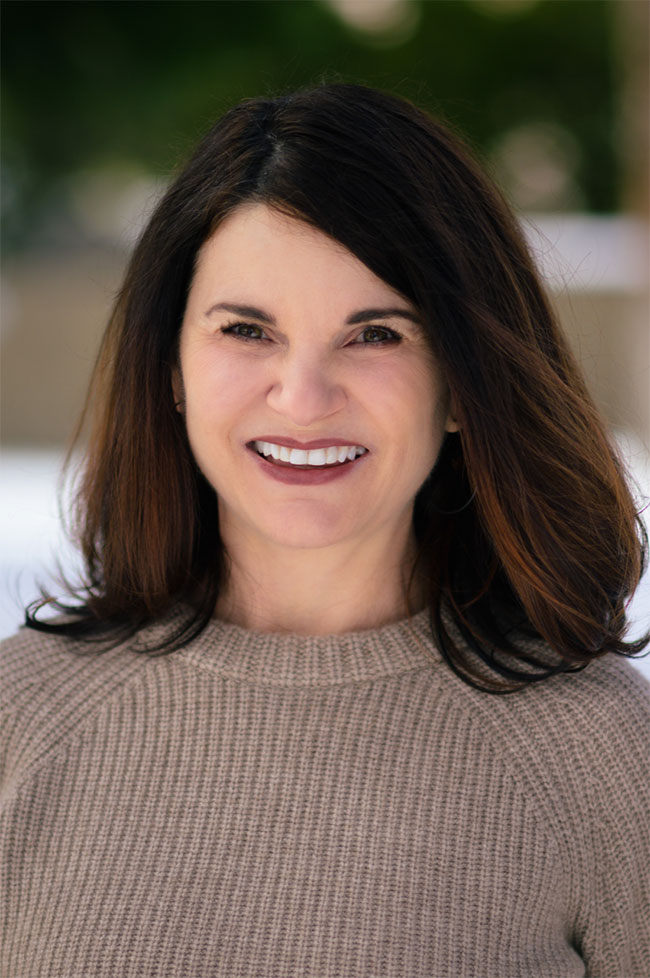
Features
Management
Sustainability
The future of seafood
Q&A with Jennifer Bushman, sustainable seafood advocate
June 2, 2021 By Mari-Len De Guzman
 Jennifer Bushman
Jennifer Bushman Kvaroy Arctic, Riverence Trout, Pacifico Aquaculture and Verlasso Salmon are only some of the aquaculture producers Jennifer Bushman has worked with, all in an effort to help them tell their sustainability stories. A top culinary expert turned seafood advocate, Bushman is on a mission to help shape the future of sustainable seafood. RAS Talk podcast hosts Mari-Len De Guzman and Brian Vinci sat down with Bushman to get her insights about the aquaculture industry’s role in the quest to make food production more sustainable, and briding the gap between producers and consumers.
RAS Talk: There are things that resonate with the consumer that RAS producers in particular should be telling their story around. Is that fair?
Jennifer Bushman: That’s very fair. It also could be the beautiful environment, or the heritage, or do you have solar on the farm, that people can learn about how you’re contributing? I work with Alexandra Cousteau, she is Jacques Cousteau’s granddaughter, and she talks a lot in Oceans 2050 about changing the mindset of those that are needing to feed themselves. No one wants to think of themselves any longer as consumers, or we “consume” goods. We want to be thought of as contributors. How does my purchase contribute to economy? How does it contribute to a more environmental, sustainable food system. Even just the language and the storytelling of changing this mindset from consumption to contribution through RAS, what are those elements that really differentiate it from a more sustainable, ethical food source, makes me feel that I am contributing to the fight against climate change or disruptive food systems that only perpetuate bad habits.
RAS Talk: What are the things that we can do as an industry or producers themselves, in particular, to help consumers toward the right information in this social media world where there is a bombardment of information – both facts and fiction?
JB: We have to first recognize that humans naturally want simple answers to very, very complex problems, and that we get overwhelmed. And when we do get into the weeds on a topic, people tend to tune us out. So, there are things that you can do – whether it’s short, impactful bullet points – I think that people have to feel that there’s hope. You can’t come out and say that this is the answer to a disruptive food system, you have to come out with the solutions. And when you put that solution-based thinking around what you’re doing, you can have people feel as if they are empowered. It really does address in some ways what happened with Seaspiracy in that we have to have a path that we believe in and we have to be empowered in solution-based thinking. And when we do that in a simple way, people will follow and of course your taste-buds and all those things end up firing on all cylinders. If it tastes great, and we give simple solutions for putting it on the table, I think that really is the path to success.
RAS Talk: Is there a producer education component to this as well, and what are some of the conversations that are happening there?
JB: We’re deeply engaged in education all the time. Some of it is let’s put everything on the table that you’re doing. Let’s see what some of the holes are… Look at the entire thing. What are those things that are going to stand out so that you can start an educational narrative? And there are places that you can tell that story where you have to make an investment. Then there are places where it’s easy. Social media has given us a really great opportunity to engage with people – chefs, buyers – just by going on Instagram, knowing a name or watching different conversations you can find your way into a relationship that can build business as well as build messaging around what it is that you’re doing.
RAS Talk: What do you think about land-based, recirculating aquaculture as a solution? Do you think there are aspects of it that can resonate?
JB: In order to find a seat at the table in the future of food, it’s going to take all inputs to feed a growing population. There will not be enough room for ocean sites especially with large-scale farming, concessions, and site planning is going to be important. There are going to be places on land that are going to be more ideal to farm than others. I think that those solutions, the right species in the right place and rearing it in the right way will create what we will then see as the future of food, and the future of fish and seafood.
Listen to the full interview with Jennifer Bushman on rastechmagazine.com/podcast
Print this page